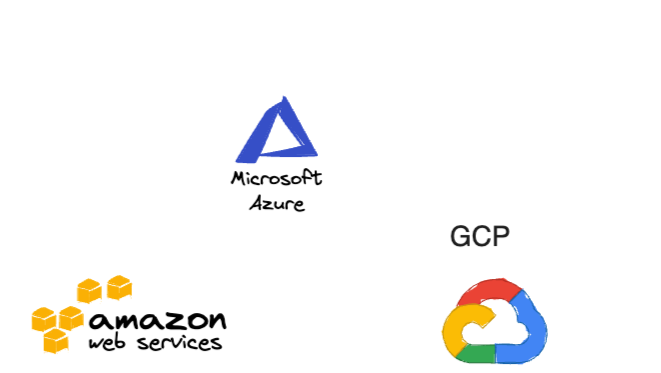

In today's digital era, choosing the right cloud provider is crucial for scalability, security, and performance. Whether you're a startup, enterprise, or individual developer, leveraging cloud computing can optimize costs, improve efficiency, and accelerate innovation. Below, we explore the top cloud providers and their unique offerings.
1. Amazon Web Services (AWS)
AWS is the world's leading cloud platform, offering a broad set of services, including computing power, storage, databases, machine learning, and IoT. With its global infrastructure and robust security features, AWS is trusted by enterprises worldwide.
Key Features:
Pay-as-you-go pricing model
Highly scalable EC2 instances
Managed databases like RDS and DynamoDB
AI & machine learning services
Comprehensive security and compliance
2. Microsoft Azure
Microsoft Azure provides an extensive range of cloud solutions, integrating seamlessly with Microsoft products like Office 365, Windows Server, and SQL Server. It is ideal for businesses looking for hybrid cloud capabilities.
Key Features:
Strong hybrid cloud support
AI, analytics, and IoT services
Enterprise-grade security and compliance
Scalable virtual machines and Kubernetes services
Seamless integration with Microsoft ecosystem
3. Google Cloud Platform (GCP)
Google Cloud is known for its high-performance computing, AI-driven services, and deep analytics capabilities. With its global network infrastructure, GCP is widely used for big data processing and AI-driven applications.
Key Features:
Advanced AI & ML tools with TensorFlow
BigQuery for high-speed analytics
Global content delivery network
Kubernetes and serverless computing options
Competitive pricing and sustainability focus
4. IBM Cloud
IBM Cloud provides enterprise-grade solutions, focusing on AI, blockchain, and hybrid cloud environments. It is well-suited for organizations needing high levels of security and compliance.
Key Features:
Hybrid cloud and AI-powered automation
Watson AI for cognitive computing
Secure and scalable cloud storage
Blockchain and quantum computing capabilities
Strong enterprise partnerships
5. Oracle Cloud
Oracle Cloud is known for its strong database services and enterprise applications. It is ideal for businesses requiring high-performance computing and secure data management.
Key Features:
Autonomous database solutions
High-performance cloud infrastructure
Advanced security and compliance tools
Integrated SaaS applications
AI-driven analytics
6. Alibaba Cloud
Alibaba Cloud is a leading cloud provider in Asia, offering a range of cloud solutions, including e-commerce hosting, big data analytics, and AI-powered services.
Key Features:
Strong presence in Asia-Pacific markets
AI-powered analytics and big data solutions
Secure cloud computing infrastructure
Scalable content delivery networks
Cost-effective cloud solutions
Why Choose the Right Cloud Provider?
Selecting the right cloud provider depends on your specific business needs, security requirements, and scalability goals. Whether you need high-performance computing, AI-driven solutions, or hybrid cloud flexibility, choosing the right provider ensures seamless digital transformation.